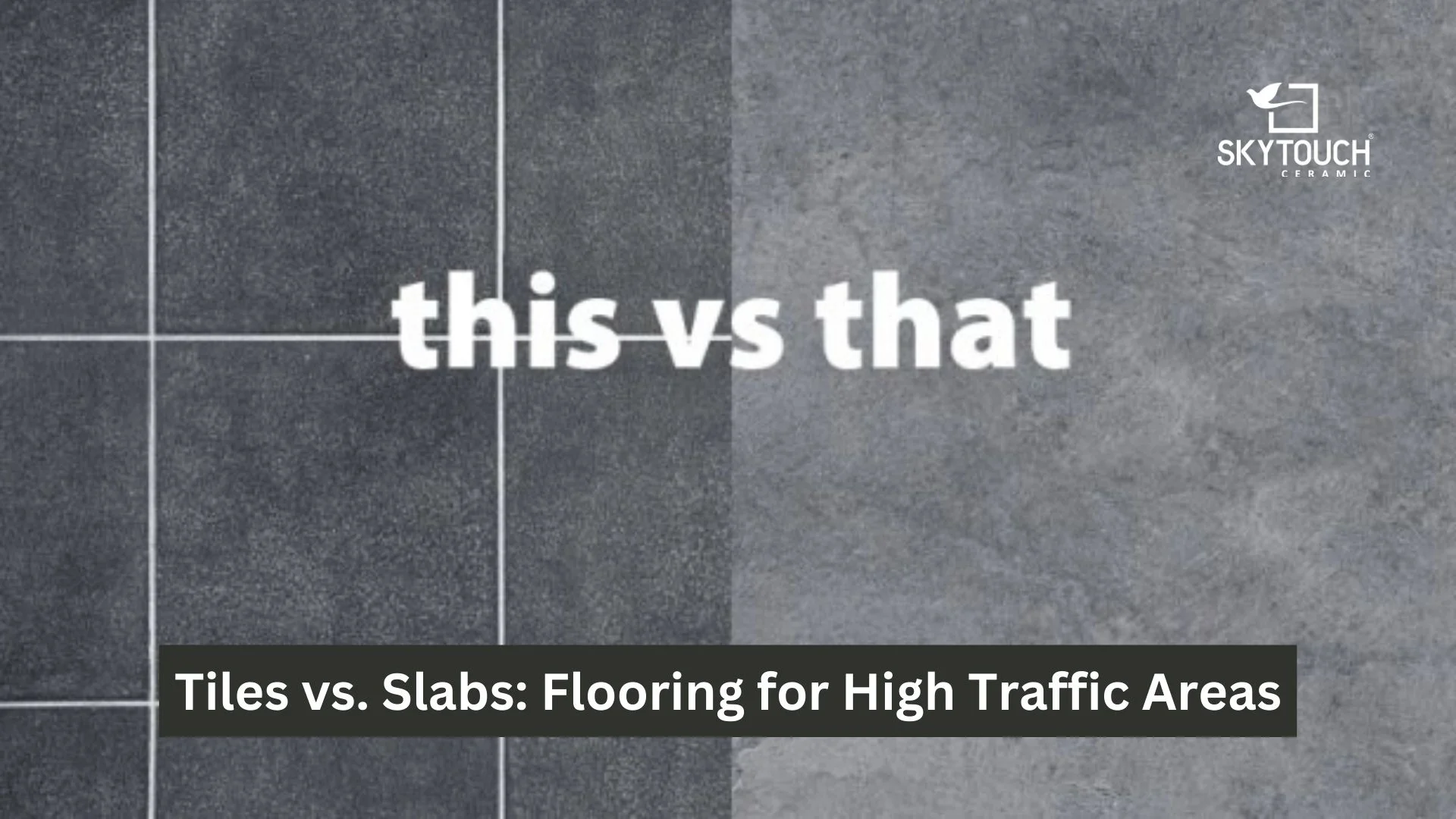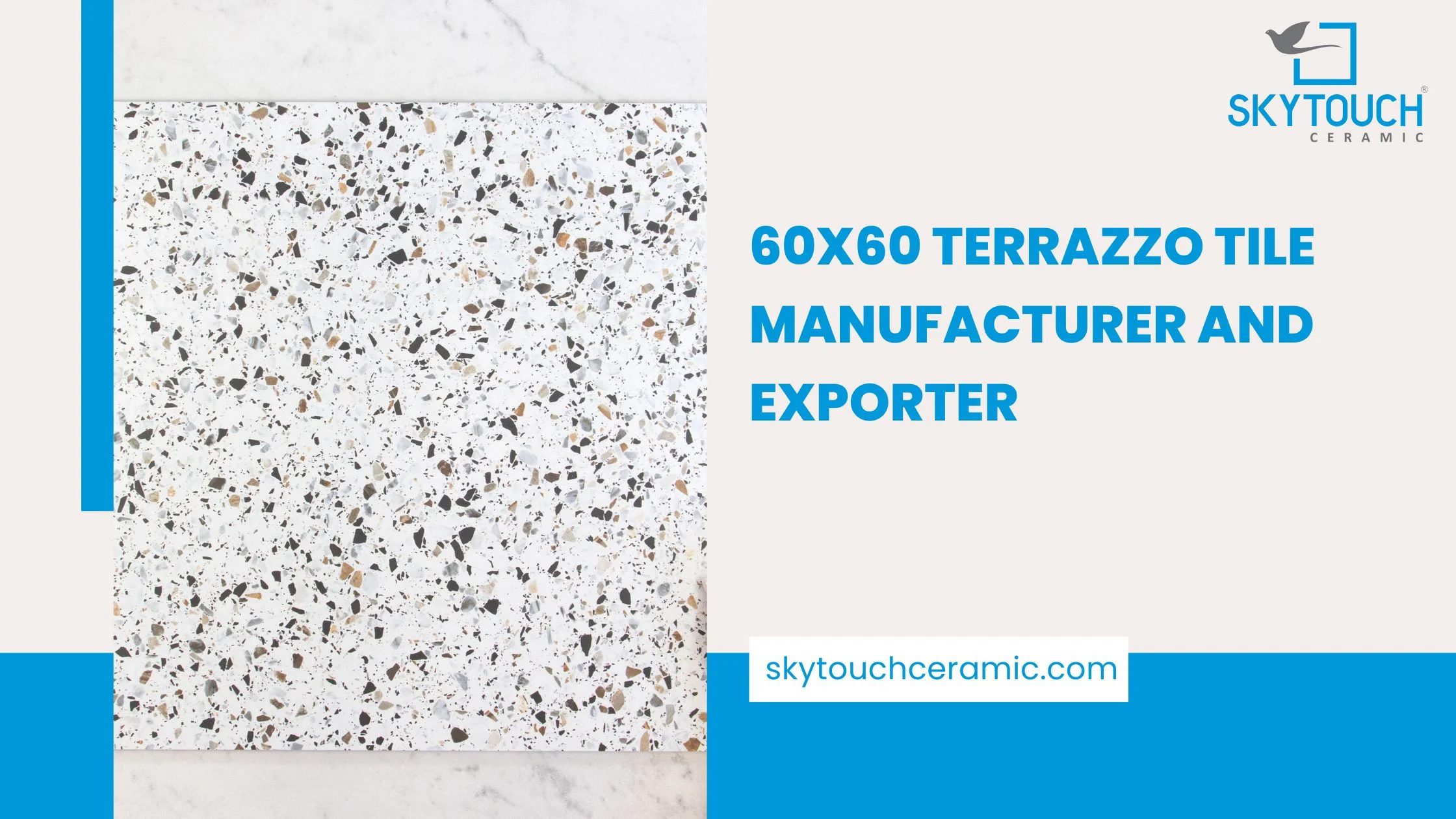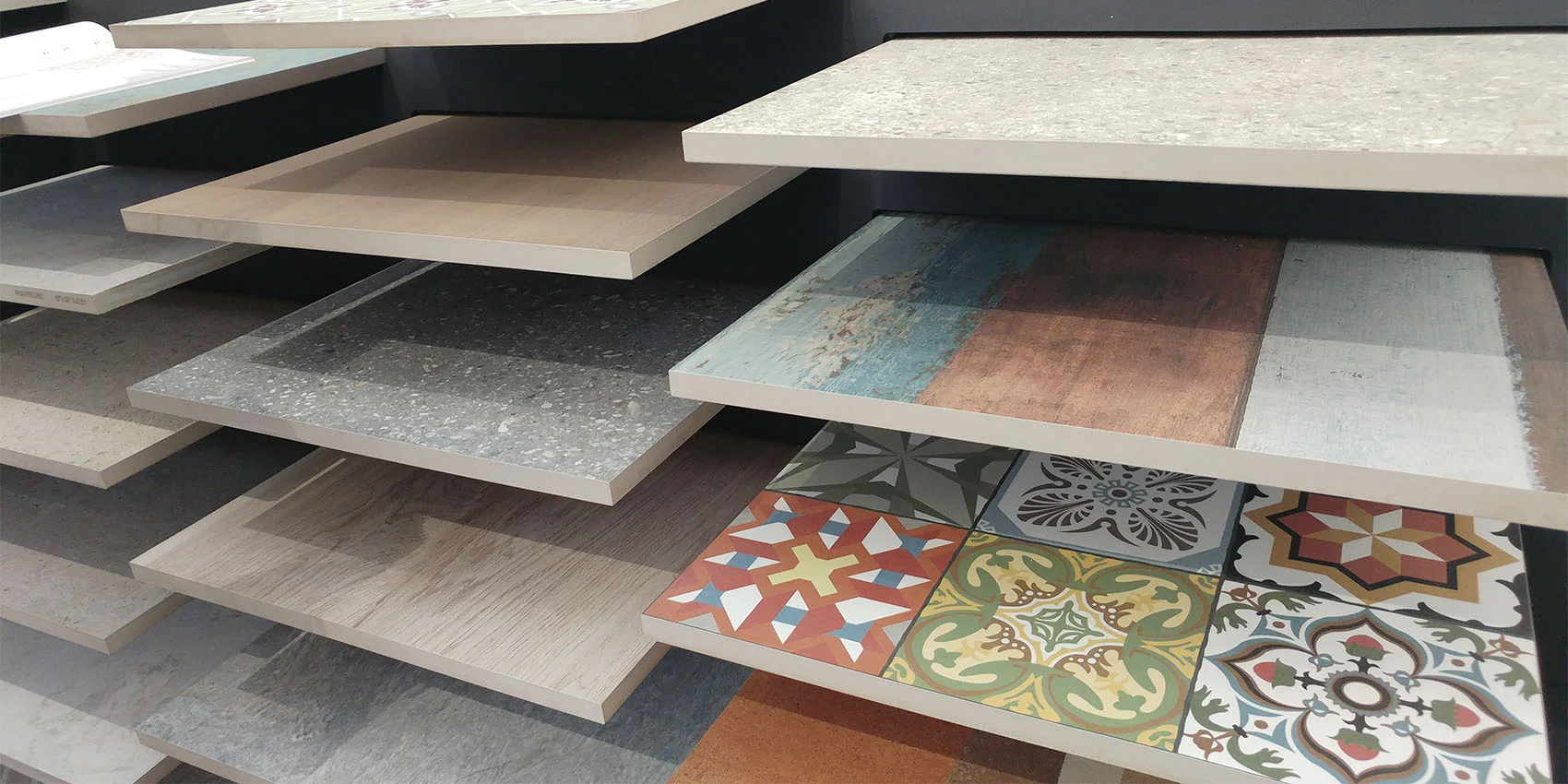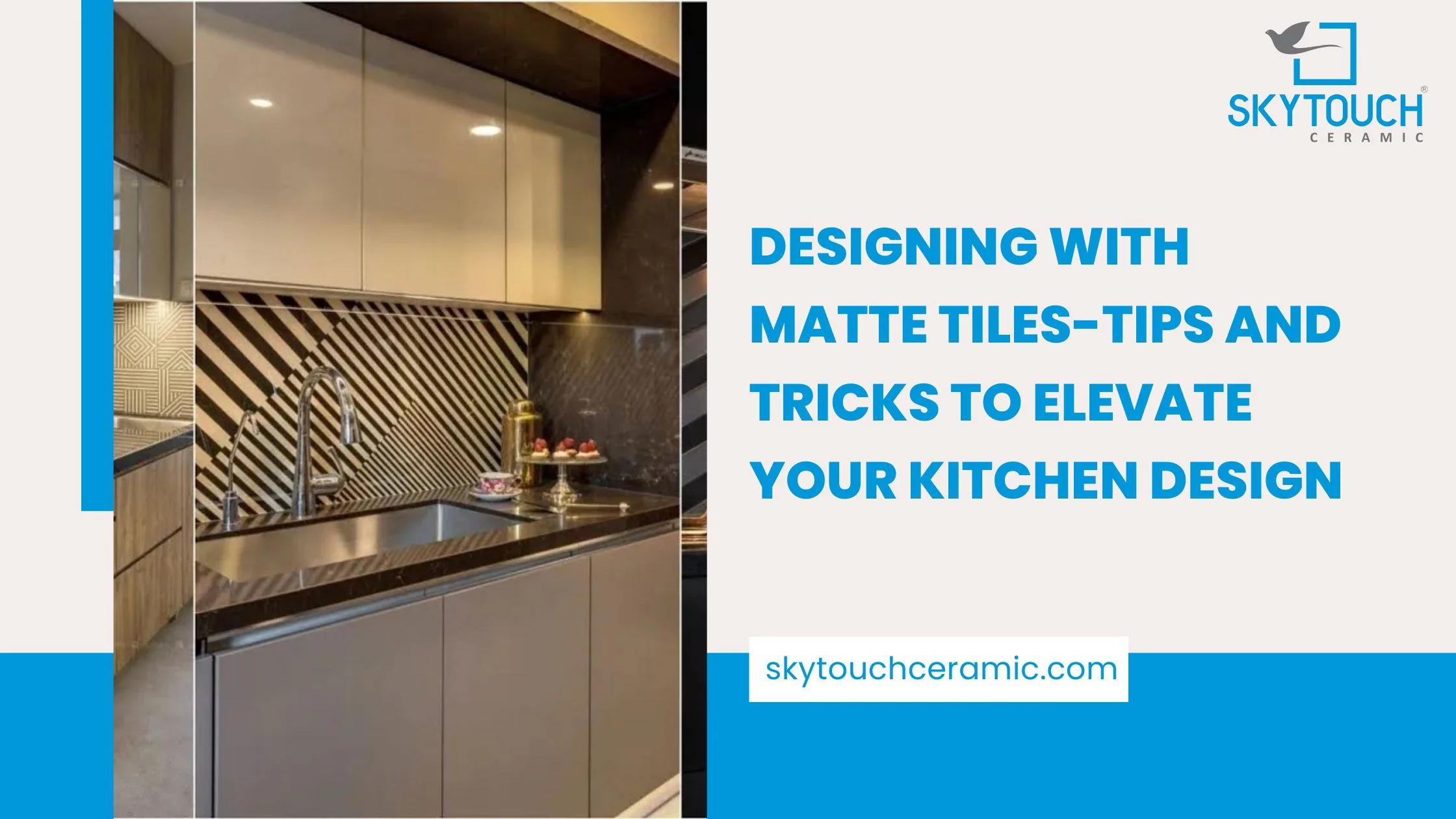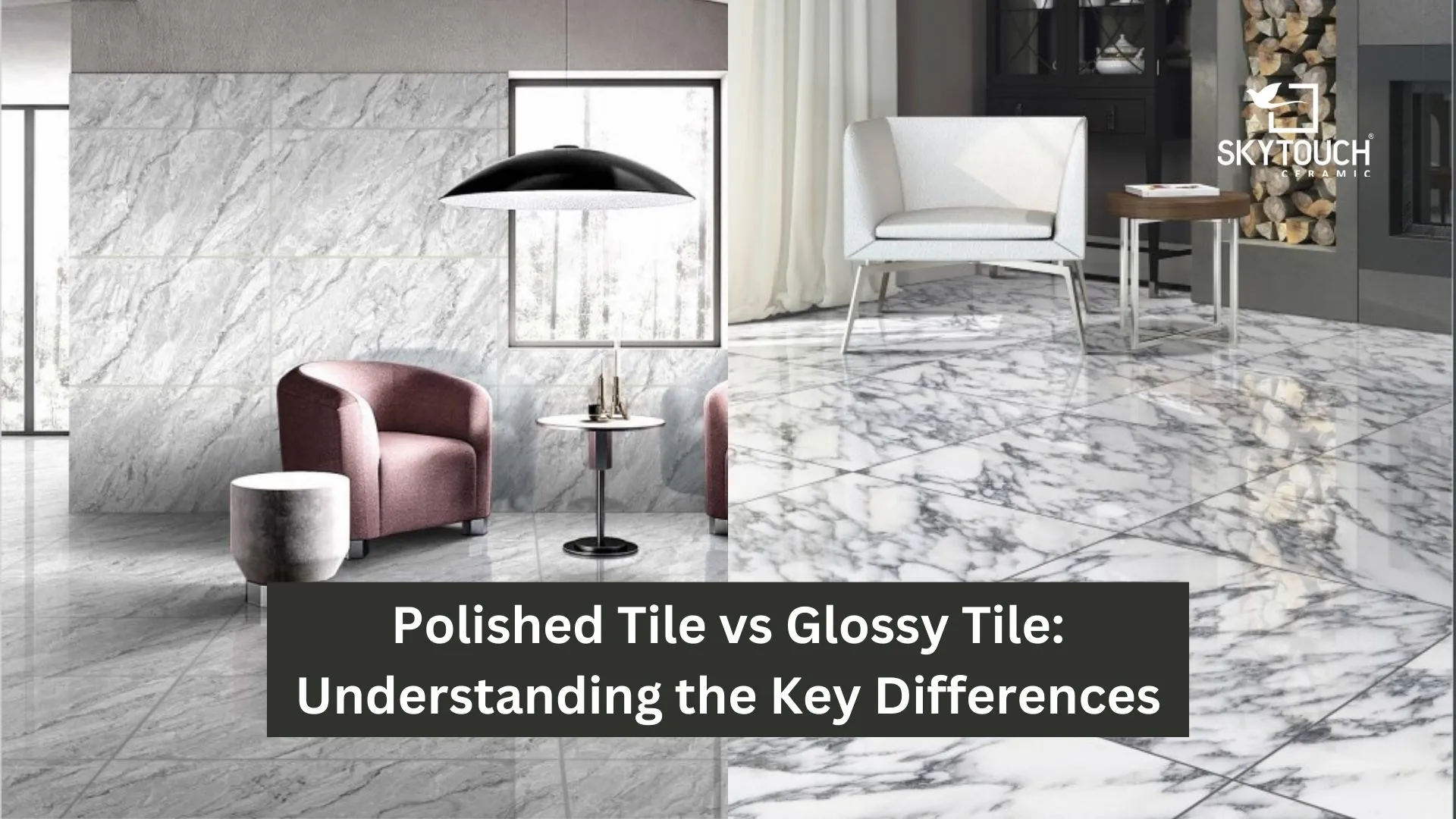Tiles and slabs are usually considered options for flooring in high-traffic commercial and industrial areas. Each has different properties, advantages, and disadvantages that make them suitable for different applications. Here's a detailed blog where we talk about the characteristics of tiles and slabs, compare them for performance in high-traffic environments, and finally help you decide which suits you best.
Understanding Tiles and Slabs
Tiles
These are usually small-sized, thin pieces of material made from different materials such as ceramic, porcelain, glass, and natural stones. Tiles come in different shapes, sizes, and designs-thus making them a versatile option for flooring. Some of the most commonly used tiles in commercial spaces are:
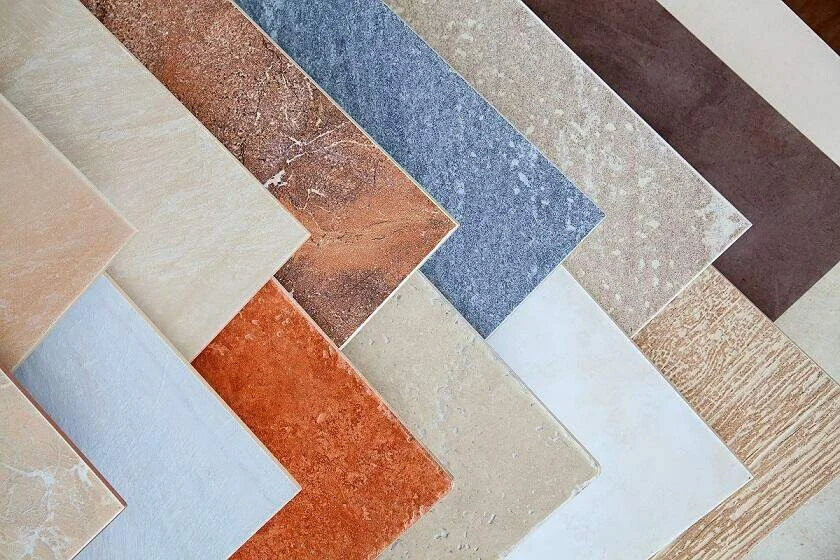
• Ceramic Tiles: Ceramic tiles are glaze coated, kiln fired from clay, and known for their resistance to dirt and minimal maintenance needs, though they may break down if subjected to very hard force. They are excellent for the retail shop, restaurant, and any other busy facility.
• Porcelain Tiles: These tiles are of the kind ceramic with higher density and less porosity, more durability, and stain resistance. Porcelain is generally used for high-traffic areas; they are commonly used in shopping malls, airport terminals, and hotels.
Other options are natural stone tiles: granite, marble, and limestone, which give a distinctive aesthetic appeal. They are tougher but will need much more maintenance and sealing in order not to stain or scratch them.
Slabs
While slabs refer to larger pieces of material, usually made from natural stone or engineered stone used for flooring purposes, some common types of slabs include:
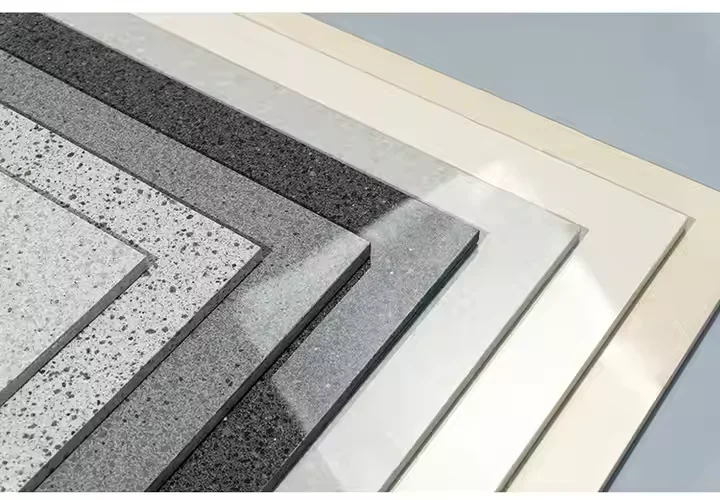
• Granite Slabs: Granite is known for strength, scratch and heat resistance. These are often sought after in luxury retail stores and hotels with a natural strength that adds elegance to the environment.
• Marble Slabs: These possess a classic look with their luxurious feel but are softer than granite and prone to scratching and staining. Marble slabs are popular in high-end clothing stores, spas, and lobbies.
• Engineered Stone Slabs: This composite of natural stones with resin resembles the aesthetic appeal of natural stone but offers better durability and less maintenance. They are suitable for a broad scope of commercial applications
Performance in High-Traffic Areas
When it comes to choosing floors for high-traffic areas, durability, maintenance, and slip resistance are some of the most important features. Let's see how tiles and slabs perform in these respects:
1. Durability
• Tiles: These are very resistant to heavy foot traffic and will rarely show noticeable signs of wear and tear, generally because the surface is very hard, thus resisting scratches. They are also less likely to crack under pressure than slabs are, although this can be dependent on the level of pressure. Natural stone tiles, however, are durable but would show vulnerability to damage if not maintained well.
• Slabs: The slabs, more especially granite, are very strong and can carry a heavy load. However, it is in large size, which makes it harder to install and repair. Where a slab becomes defective, it may be more difficult to replace and costlier than tiles alone.
2. Maintenance
• Tiles: Tile flooring is relatively easy to maintain. Sweeping and mopping regularly can keep them looking clean. Porcelain tiles are low maintenance and resistant to stains, thus ideally suited for commercial environments where spills occur frequently. However, tile grout lines can be cleaned and sealed regularly to prevent discoloration.
• Slabs: Slabs also require maintenance, but it varies according to the material. Granite slabs are basically sealed to resist stains and moisture; marble slabs require much more attention as their etching and staining can cause acidic substances that can easily mess up their appearance, so cleaning pH-neutral products should be a regular activity.
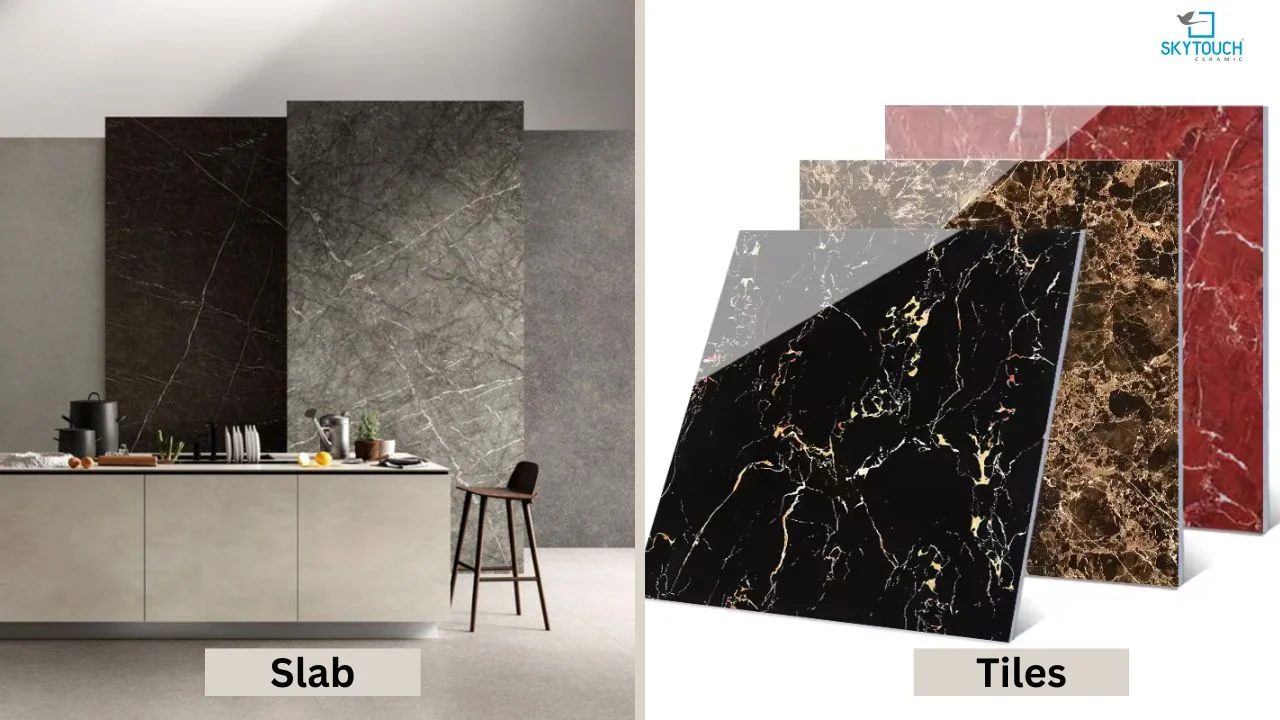
3. Slip Resistance
• Tiles: For busy places, most significantly where fluids are probably to spill, there is a need for slip resistance, especially in the kitchen and bathroom. Most tile types have to have a rough surface for friction; hence, they become safer for commercial use. Porcelain tiles can even be designed with anti-slip property.
• Slabs: Slip resistance varies with the material and finish of slabs. A honed or textured finish can help improve slip resistance compared with that of a polished finish, which tends to be slippery, especially when wet. In high-traffic commercial installations, proper finishes on slabs will ensure safety.
4. Aesthetic Appeal
Besides performance, aesthetic value holds a very significant position in flooring selection for commercial spaces.
• Tiles: Tiles come in a dizzying array of designs, colors, and patterns-just about every possible combination. Tile - Present as much design itself, offered by a variety of easy settings, end with creative expression in retail, in offices, and in restaurants. They even allow designs to be modeled after the look of natural stone or wood,.
• Slabs: Slabs, especially with natural stones, will give that luxurious and sophisticated look. The veining and patterns of granite and marble add some kind of differentiated kind of beauty. Commercial spaces happen to be the high-end places of display which offer the elegant look of slabs of the luxurious population.
5. Cost Considerations
Another very significant variable in choosing the flooring for high-traffic locations is cost.
• Tiles: In general, tile is less expensive than slab, so it is often a more attractive choice for cost-conscious projects. Porcelain is more expensive than other tiles, but it has a longer lifespan and will require less in the way of maintenance.
• Slabs: Slabs are more expensive than tiles in raw material and installation. Due to the larger size, slabs might need a different type of installation, which will increase labor costs even more. However, this investment may be worth it in such high-end applications where aesthetics and durability are of prime importance.
Application in Commercial Spaces
Different commercial spaces have varying requirements that influence flooring choices.
1. Retail Stores: In retail stores, the floor experience is always heavy-duty from foot traffic. Also, the aesthetic appeal of flooring is required. Tiles are very popular in retail space for their various designs and colors for display. However, slabs are increasingly being applied for luxury retail purposes to offer a luxurious feel and durability.
2. Restaurants and Cafés: Flooring in the food service establishments should be cleanable easily and spill resistant. Tiles are the best option when they contain a non-slip coating. Slab flooring provides an attractive, seamless appearance, perfect for outdoor dining areas-thus not a problem with heavy traffic.
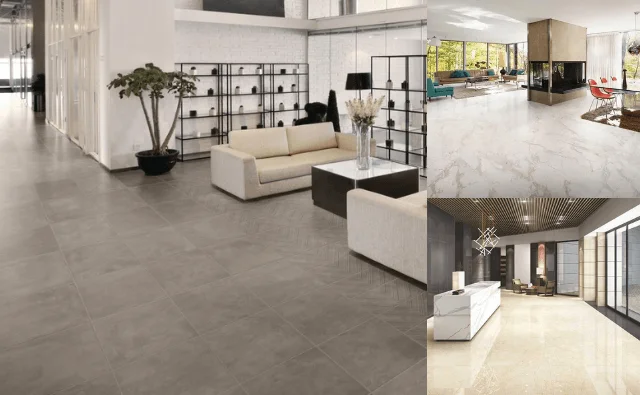
3. Corporate Offices: Corporate spaces have basic criteria for aesthetics and durability. Utilize polished concrete or natural stone slabs for sophisticated settings or install a variety of tile selections in combination with distinct zones within the office space.
4. Hotels and Hospitality: A hotel calls for something a little more ornate and more long-lasting. Slabs are often utilized for lobbies and other high-traffic locations due to their elegance and longevity. In contrast, tiles will do for the guest rooms and bathrooms as they will provide flexibility in design and simple maintenance.
5. Healthcare Facilities: Hospitals and clinics, on the other hand, will require flooring that not only cleans easily but is also hygienic. Tiles, having antiseptic properties and cleanliness-friendly characteristics, are often used in these locations. Slabs provide a smooth easy-to-clean look that gives an aesthetic feel to the waiting space if used.
Skytouch Ceramic: A Leading Tile and Slab Manufacturer and Exporter
Skytouch Ceramic is among the top manufacturers and exporters for high-quality commercial tiles and slabs. Keeping towards excellence, Skytouch Ceramic now offers a comprehensive variety of products to meet the demands of the high-traffic segment. Their selection included both ceramic and porcelain tiles, which were supposed to withstand the trials of a busy environment with the perfect finish.
With advanced manufacturing techniques and innovation in design, every tile and slab produced meets durability standards and adds to the visual impact of commercial spaces. Skytouch Ceramic has been a trusted partner for architects, interior designers, and contractors in creating functional and beautiful flooring solutions for retail stores, hotels, airports, and more on the grounds of quality and customer satisfaction. With the theme of sustainability and high-tech design, Skytouch Ceramic continues to innovate and set the bar on excellent flooring.
Conclusion: Which One is Better?
To put it all in a nutshell, tiles stand out as the right choice when you prioritize cost-effectiveness, ease of maintenance, and the flexibility to design your commercial space. But if the prize to be won would be luxurious looks and maximum durability, then slabs can bring richness to the aesthetic value of your establishment to mention their durability in upholding the demands of high-traffic areas. Assess your priorities and choose the flooring option that best satisfies your needs for the purpose at hand.

